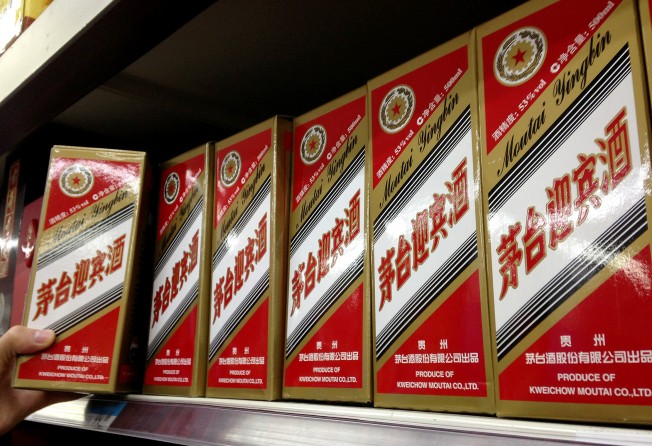
Kweichow Moutai ventures into European real estate
Liquor producer to make investments in Paris property market as it diversifies business

Kweichow Moutai, China’s biggest liquor producer by market value, has announced it will invest 8.79 million euros (HK$91.4 million) in real estate in Paris to help expand its business in Europe.

The firm’s domestic business was badly hit earlier this year after then president-in-waiting Xi Jinping outlined in a speech in December austerity guidelines for government and Communist Party officials banning lavish banquets at which mao-tai, a variety of baijiu, a fiery white spirit favoured by officials and rich businessmen, is often served.
In three months, the price of a bottle had fallen by a third. Since then, as the national anti-graft campaign wears on, demand has picked up again. However, the company may decide that it is prudent not to put all its eggs in one basket, whence the fresh initiative abroad.
Nevertheless, mainland analysts studying the company say the relatively small investment should be seen as part of a branding strategy, which won’t produce an immediate effect on the bottom line.
“This reflects the business needs overseas, but the investment is under 100 million yuan [HK$1.26 million],” said an analyst from Yinda Taihe Property Insurance. He said the reason Moutai chose France was probably because it had already established some business there.
Hong Kong-based Silver Base, a distributor of alcoholic beverages that obtained distribution rights to Moutai’s products in Poland, Hungary, the Czech Republic, Slovakia and Bulgaria in January, told the South China Morning Post it was not aware of the property investment.
Although Moutai began to venture internationally in 2004 by selling the liquor in duty-free shops, the revenue generated from international markets is still small. The company’s mid-year report shows revenue from abroad was 382 million yuan, 4.28 per cent higher than a year earlier, but still only 2.71 per cent of total revenue.
In 2011, chairman Yuan Renguo said the company would develop its international business and planned to build five branches abroad in five years.
“The overseas market for Moutai is really small,” an analyst in Beijing said. “They wouldn’t focus on that. And the main consumers are still Chinese abroad, because it’s cheaper and the quality of the exported product is secure.”
A report released by Guotai Junan Securities after the board took its decision to make the investment at a meeting on Saturday said that in the sluggish market for baijiu, Moutai is in the best position when compared with other brands.
By the beginning of this month, Moutai’s sales volume was almost the same as at the same time last year, and the growth rate exceeded 20 per cent, which was higher than in the previous three quarters.
Analysts think the main reason could be that the number of new distributors outstripped the planned target, and many were betting on the future growth of demand when the anti-corruption movement dies down.
“The franchise of Moutai is still popular in this sluggish market,” the report said.
Moutai has bought some domestic properties before on which to build its branded retail stores. Analysts think the firm intends to use the properties in France for the same purpose.
“It’s hard for other brands in China to follow this step,” said the analyst in Beijing. “Only when a company has that high level of recognition and demand can it expand abroad.”